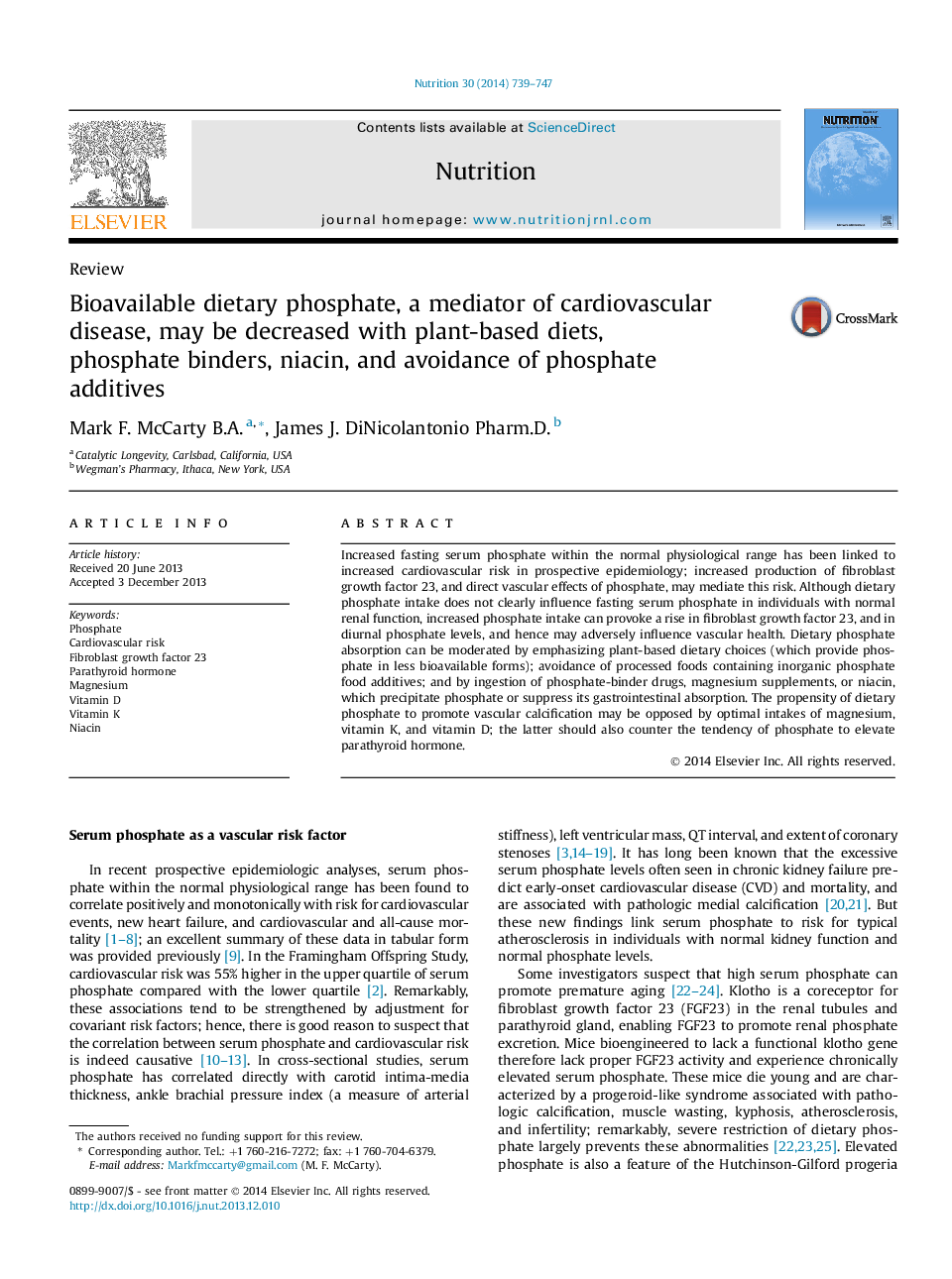| Article ID | Journal | Published Year | Pages | File Type |
|---|---|---|---|---|
| 6089566 | Nutrition | 2014 | 9 Pages |
Increased fasting serum phosphate within the normal physiological range has been linked to increased cardiovascular risk in prospective epidemiology; increased production of fibroblast growth factor 23, and direct vascular effects of phosphate, may mediate this risk. Although dietary phosphate intake does not clearly influence fasting serum phosphate in individuals with normal renal function, increased phosphate intake can provoke a rise in fibroblast growth factor 23, and in diurnal phosphate levels, and hence may adversely influence vascular health. Dietary phosphate absorption can be moderated by emphasizing plant-based dietary choices (which provide phosphate in less bioavailable forms); avoidance of processed foods containing inorganic phosphate food additives; and by ingestion of phosphate-binder drugs, magnesium supplements, or niacin, which precipitate phosphate or suppress its gastrointestinal absorption. The propensity of dietary phosphate to promote vascular calcification may be opposed by optimal intakes of magnesium, vitamin K, and vitamin D; the latter should also counter the tendency of phosphate to elevate parathyroid hormone.
